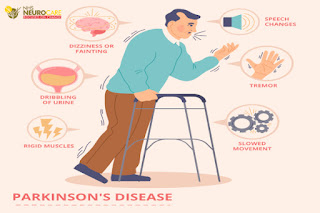How to Know If You Need a Neurologist?
You may not think you need a neurologist, but you may be surprised that you may actually need help. The unusual behaviours, frequent headaches and many other signs which are commonly neglected are capable of turning into a neurological disorder and you might need the help of an expert.
Neurologists are trained in the diagnosis and treatment of disorders of the nervous system, which includes the brain, spinal cord, and nerve. In this blog post, we will explore some of the common reasons why people see a neurologist. From migraines and headaches to Alzheimer’s disease and dementia, read on to learn more about when you should see a neurologist.
Signs you should not ignore
- Persistent or severe headache
- Changes in vision
- Weakness or numbness in the face, arms, or legs
- Loss of balance or coordination
- Difficulty speaking or swallowing
- Seizures
Don't ignore these warning signs! If you are experiencing any of them, make an appointment to see a Neurologist.
Neurological diseases
Neurological diseases can be difficult to diagnose because they often involve complex symptoms that can be attributed to a number of different conditions. If you are experiencing any neurological symptoms, it is important to see a doctor for a proper diagnosis.
Some common neurological diseases include Alzheimer's disease, Parkinson's disease, epilepsy, and brain stroke. These conditions can cause a wide range of symptoms, including memory loss, trouble speaking or swallowing, impaired movement, and changes in mood or behavior.
If you are concerned about any neurological symptoms you are experiencing, make an appointment to see a doctor. Your primary care physician can provide a referral to a neurologist if necessary.
Neurology Treatments
Neurological disorders can be treated with a variety of methods, depending on the cause and severity of the condition. In some cases, medication may be prescribed to help relieve symptoms or improve nerve function. Physical therapy and rehabilitation exercises may also be recommended to help patients regain strength and coordination. In more severe cases, surgery may be necessary to correct damage to the nervous system.
Medication: A wide range of pharmaceuticals, including painkillers, anti-seizure medications, and treatments that assist enhance muscular strength and coordination, can be used to treat neurological problems. The is prescribed by the neurologist following a thorough examination of the situation.
Physical therapy: Physical treatments can be used to treat some neurological problems. Strength, flexibility, and range of motion are all improved. For people with neurological problems, it can also lessen discomfort and enhance quality of life.
Simple lifestyle adjustments can frequently assist to reduce the symptoms of many neurological diseases. Eating a balanced diet, exercising frequently, getting adequate rest, and controlling stress are a few useful adjustments.
Conclusion
The neuro care specialists at NHS Neuro Care can assist you if you're having issues with your nervous system. For people suffering from illnesses including Alzheimer's disease, Parkinson's disease, multiple sclerosis, and others, they provide a comprehensive range of services. They can give you the best care possible because of their extensive training and years of expertise. Don't overlook odd behavior and get professional help as soon as you can.



Comments
Post a Comment